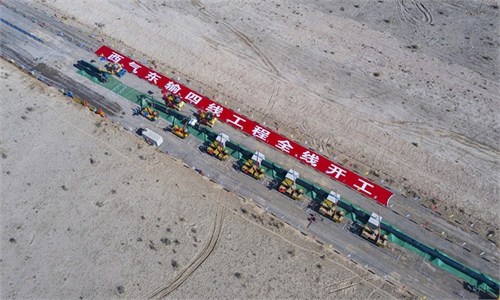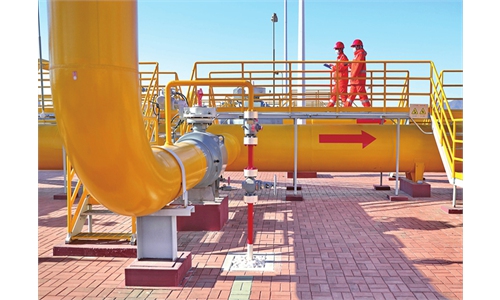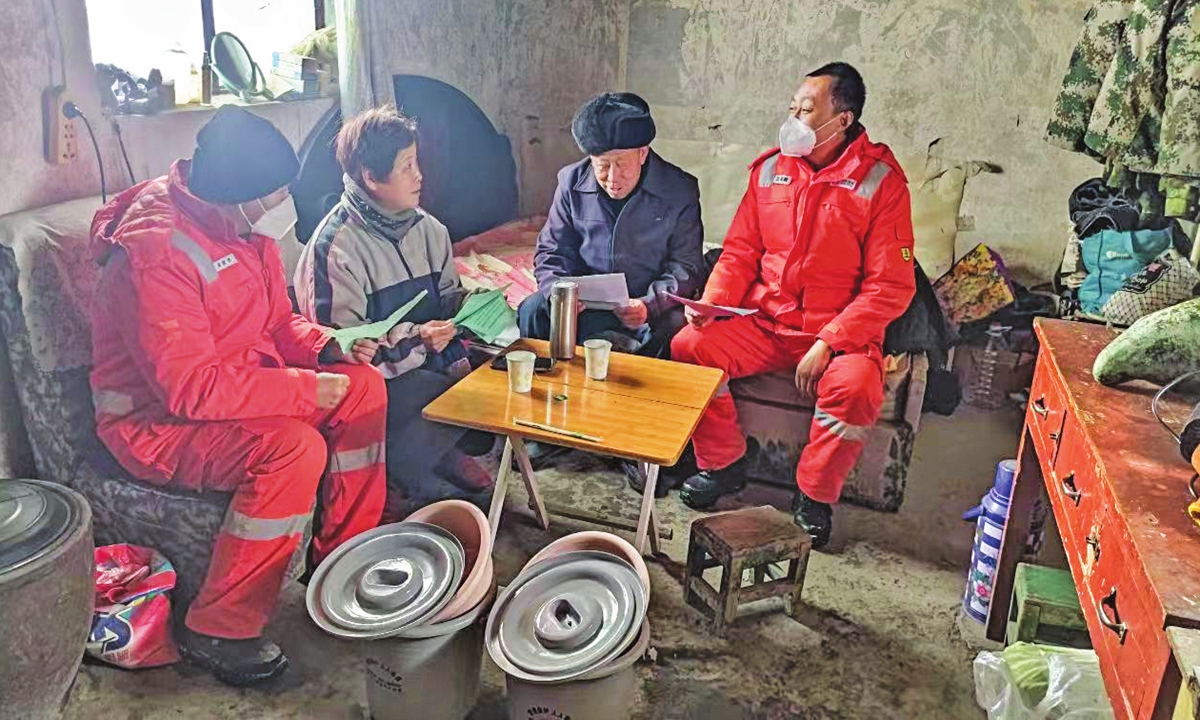
Wang Junhui (first right), a protector of China-Kazakhstan crude oil pipeline in the Alashankou crude oil station, talks with villagers about the importance of protecting the pipeline. Photo: Courtesy of Wang Junhui
Wang Junhui talked very passionately about how he persuaded villagers to protect the China-Kazakhstan crude oil pipeline. The 46-year-old has patrolled the pipeline three times a day, persisting in his role of "pipeline protector" for 17 years.
With a total length of 2,800 kilometers, China's first overland cross-border crude oil pipeline runs from Atyrau in West Kazakhstan to Alashankou in Northwest China's Xinjiang Uygur Autonomous Region. Since it was put into operation in 2006, it has transported 165 million tons of crude oil to China.
The 106 kilometers of pipeline runs through 86 farmlands in the administrative area of the Alashankou crude oil station in Xinjiang. Ordinary villagers find it difficult to understand the importance of the pipeline, and shrug it off and often build, plant or dig the ground around the pipeline, but Wang offers a very different perspective on the matter.
Global Times reporters waited for Wang to return to his office after he finished his daily patrol. He started by saying that planting vegetation with deep roots or building structures within 5 meters on each side of the center line of the pipeline threatens its security.
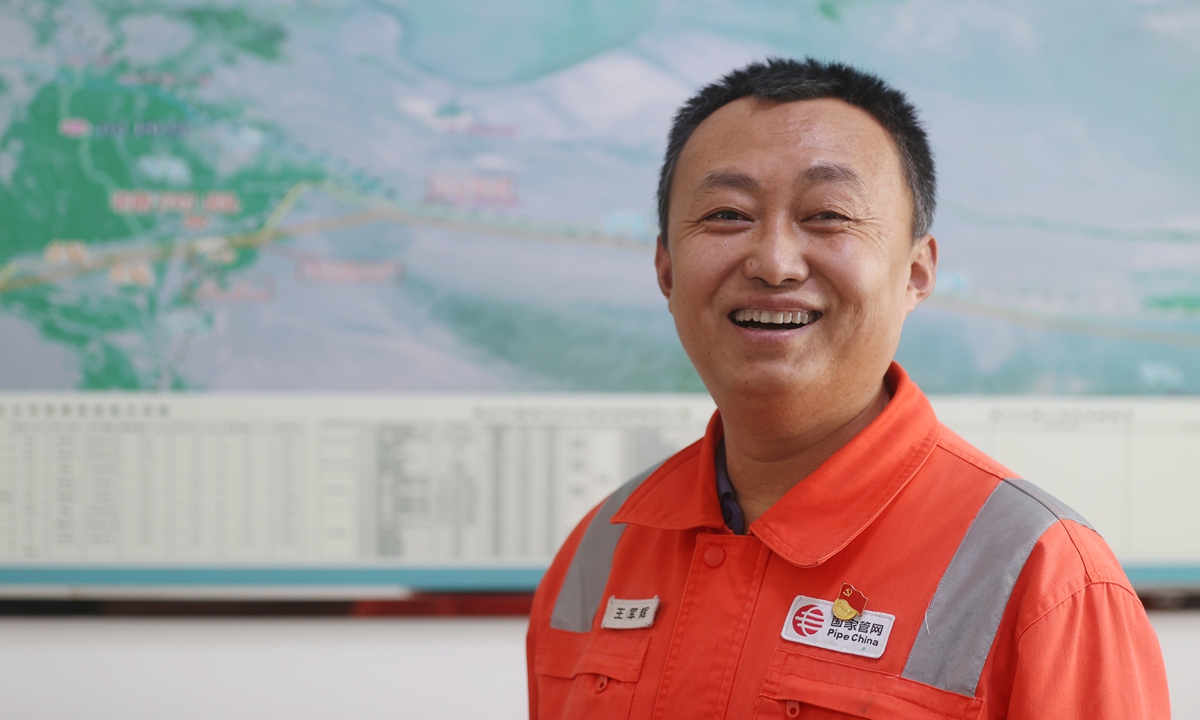
Wang Junhui Photo: Cui Meng/GT
"It was really a hard job to do in the beginning. I had to knock on the doors of the villagers one after the other to inform them about the importance of protecting the crude oil pipeline."
"When I told people that this pipeline is a national energy corridor, they did not understand it, but once I told them about the dangerous consequences, they started taking the protection of the pipeline seriously."
To attract their attention, the Alashankou crude oil station also distributed free basins, garbage cans, reusable bags and cups printed with the slogan reading "It is everyone's duty to protect the pipeline."
In emergency or if they notice activities that may threaten the pipeline, farmers can just dial a 24-hour hotline that is printed on those little gifts.
Sometimes, Wang even helped villagers to fix drains, or bought the villagers' slow-selling cotton together with his friends and colleagues. Over the years, Wang had won the trust of the locals.
Together with Wang, the Alashankou crude oil station has two other pipeline protectors. They normally start their daily patrol at 8 am and go back home at around 10 pm at night, sometimes they drive, sometimes they walk and sometimes they use drones for patrolling.
As the first stop of the western oil and gas energy corridor, the pipeline passes through the Aibi Lake Wetland National Nature Reserve, Bole-Alashankou Expressway, Jinghe-Alashankou Railway, a populous euphratica forest reserve and farmlands.
Besides the complex terrain where the pipeline is located, the strong wind in Alashankou also makes Wang's patrol work difficult: Alashankou is known as "wind city," and it has more than 180 days of strong winds above force 8 throughout the year.
Wang did not stop working despite the COVID-19 epidemic.
"My colleagues and I made about 10 calls every day, asking villagers about the security of the pipeline and the villager's concerns during the epidemic." Each week, all 86 households living along the pipeline were notified by the pipeline protectors.
Though he's been working at the same post for 17 years, Wang, who is originally from the Gansu Province, has never grown bored of his job.
"I felt like it was fun to patrol along the pipeline in the beginning and then I gradually started feeling the huge responsibility that I was carrying on my shoulders as I realized that the protection of the pipeline concerns the entire country's energy security."
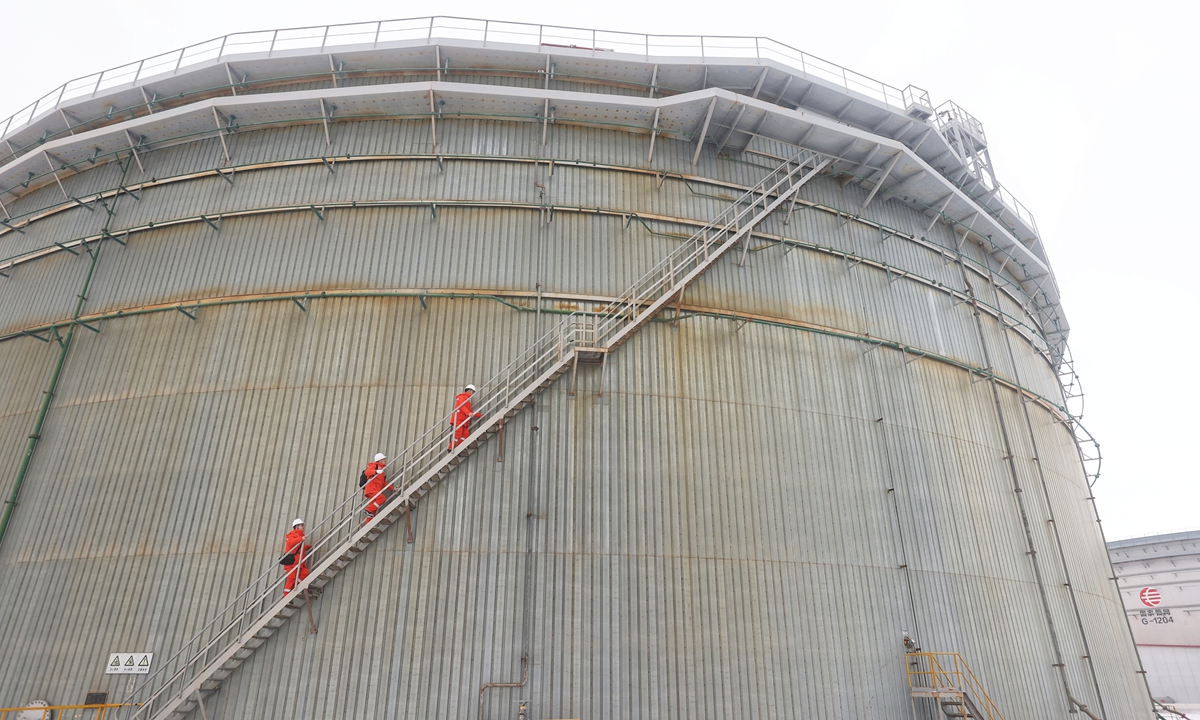
Kang Bo (right), head of the Alashankou crude oil station in Northwest China's Xinjiang Uygur Autonomous Region, patrols the crude oil storage area with two coworkers. Photo: Cui Meng/GT
Like Wang, a total of 32 people have been working for years at the Alashankou crude oil station, part of Chinese state-owned company China Oil and Gas Pipeline Network. About 90 percent of Wang's colleagues working at the station are away from their homes."I'm proud of safeguarding the pipeline. We will continue to stick to our posts to protect the smooth operation of the first stop of the country's energy corridor," said Kang Bo, director of the station.

